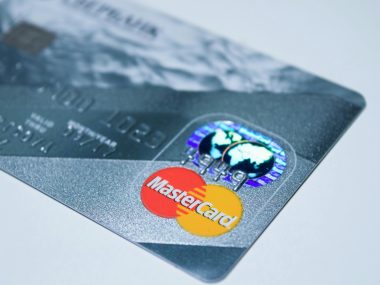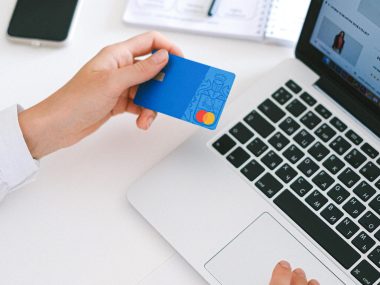In today’s fast-paced financial world, credit cards are not just a convenience but a necessity for many. They have the power to build your credit and earn you rewards, but if misused, they can also lead to debt and credit score downfalls. Understanding how to use a credit card responsibly is imperative for financial health.
This guide will explore best practices, tips for monitoring spending, and tools to keep you on the right track.
What Are the Best Practices For Using A Credit Card Responsibly?
When it comes to using a credit card, the word ‘responsibly’ cannot be emphasized enough. The primary purpose of a credit card should be to aid in financial management, not to become a burden due to misuse. Pay your credit card balances in full each month to avoid unnecessary interest, which can quickly accumulate, and to maintain a solid credit score.
People often view credit cards as an extension of their income, which can be a dangerous misconception. To avoid falling into this trap, treat credit cards as a tool for convenience, not as a means to live beyond your means. Here is how you can apply this:
- Use credit cards for purchases for which you already have cash.
- Keep a vigilant eye on your expenses, checking your statements regularly for any discrepancies, and staying within budget.
- Indulge in the benefits of a credit card, such as reward points or cash back, but don’t let these incentives encourage unnecessary spending.
- Ensure that your credit utilization – the amount of credit you use compared to your credit limit – remains low, as it is a critical determinant of your credit score.
Using your credit card wisely involves budgeting, tracking your spending, and understanding the terms of your credit agreement. These practices help safeguard your credit score and prevent financial strain.
How Can I Keep Track Of My Credit Card Spending To Avoid Debt?
Debt avoidance starts with tracking your spending. Review your statements regularly, which not only helps in keeping tabs on your expenses but also aids in the early detection of any fraudulent activities. By setting up spending alerts, you will be notified when you are nearing your budget limit, helping you stay within your budget’s means.
Creating and adhering to a personal budget is essential:
- Account for your credit card purchases within your monthly budget to avoid overspending.
- Consider using budgeting apps that connect to your credit accounts to track spending in real-time.
Additionally, keep a close eye on your credit report. Regular monitoring will give you insights into your credit utilisation and its effect on your credit score. Understanding these dynamics can guide your spending decisions.
Proactively monitoring your spending habits and credit card use is fundamental in preventing debt accumulation and maintaining financial stability.
How Much Of My Credit Limit Should I Aim To Use To Maintain Good Credit Health?
Good credit health is partially built on good credit utilization, so experts recommend using no more than 30% of your credit limit at any given time. This suggests to potential lenders that you manage credit prudently.
- Keep your balances low in relation to your total credit limits.
- Understand that high balances can affect your score, so keep track and pay off your debt promptly.
If you often approach your credit limit:
- Consider making multiple payments throughout the month.
- Request a credit limit increase if you have a good payment history and consistently maintain low credit utilization.
Maintaining good credit health through responsible credit card use requires awareness and action. Keeping credit utilization low and seeking ways to improve your credit options over time are vital steps in this process.
What Should I Do If I Find Myself Unable To Pay Off My Credit Card Balance In Full?
If paying off your balance in full becomes challenging, it’s important to act quickly to find solutions. Contact your credit card issuer immediately to discuss your situation; they may offer a payment plan or other accommodations.
Here are some steps to take:
- Consider a balance transfer to a lower interest-rate card if you qualify for one.
- Tightly budget your expenses to allocate more funds towards your credit card debt.
- Look at debt consolidation as a way to manage multiple debts.
If you’re feeling overwhelmed, seek help:
Credit counselling services can offer guidance and help in formulating a repayment strategy.
Managing debt responsibly means acting quickly, considering all available options, and seeking assistance if needed to get back on a stable financial footing.
Are There Any Tools Or Apps Recommended For Monitoring And Managing Credit Card Usage Effectively?
With technology at our fingertips, there is a plethora of tools and apps designed to aid in financial management. For budgeting and tracking credit card spending, apps like Mint or YNAB (You Need A Budget) are incredibly useful. They organise expenses and offer a clear view of your financial picture.
Consider taking advantage of the following tools:
- Mobile banking and credit card issuer apps to keep track of real-time transactions.
- Budgeting apps that sync with your credit cards to help manage spending limits and categorize expenses.
- Services that offer regular credit score updates and alert you to potential fraud.
Adopting these tools can not only simplify credit card management but can also encourage better financial awareness and habits.
Fully embracing and incorporating these tools into your daily financial routine can lead to more effective credit card management and stronger financial health.
Empowering Your Financial Future
Utilizing a credit card responsibly is key to ensuring that this financial instrument remains an asset rather than a liability. By implementing best practices, optimising credit card use, adhering to budget guidelines, considering external help during financial stress, and leveraging the power of technology, you can navigate the world of credit with confidence.
Through discipline and smart management, you can use a credit card as a stepping stone to a secure financial future.
Please Help Share This Post









